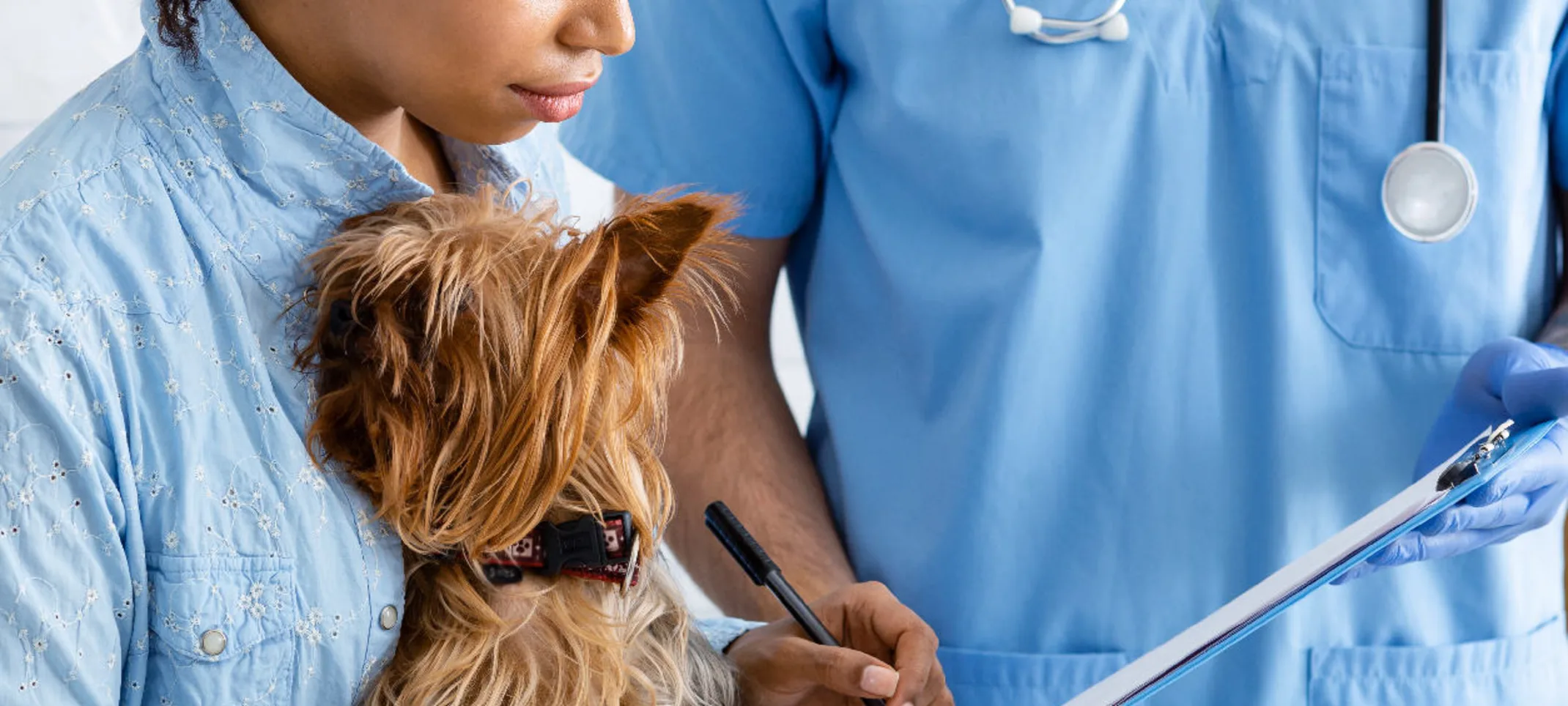Allandale Veterinary Hospital
Wellness & Preventive Care
Annual wellness exams evaluate your pet’s health, detect problems before they become serious and keep them on track to live a long, healthy life.

Preventative Care
One of the most important parts of the care we provide your beloved pets is preventative medicine. Preventative medicine has many different aspects to it, from annual physical exams, vaccinations, blood/urine testing, spaying/neutering, parasite prevention, dental care, and many others.
All of them work together to allow us to provide better care for your pet by being able to spot problems early, plan an appropriate intervention, or prevent them all together.
Remember, our pets age much faster than we do. A lot can change in a year of their life.
Preventative medicine includes:
Physical Examinations (every 6-12 months)
Physical exams are a key component to preventative medicine. Animals can’t usually tell us if something has changed (either subtle or drastic). A physical exam by our trained veterinarians allows us the ability to monitor for changes in their heart/lungs, skin/coat, if there are any masses or abnormal growths, dental disease, changes in body weight or body condition score, etc.
Vaccinations:
Keeping up to date on vaccines for your pet can protect them from contracting serious and potentially life-threatening diseases
Vaccinating your pet also helps to protect us! Some diseases that we commonly vaccinate against can be spread to humans and cause serious health complications or death (ex. Rabies or Leptospirosis).
Blood/urine testing
At the minimum, yearly blood and urine testing screens your pet for a variety of potential health issues that can crop up. By getting yearly base-line values gives us the ability to notice when things are changing for the worse, and again, intervene accordingly.
We can also test for common diseases that your cat or dog could have:
Thyroid issues
kidney or liver issues
Heartworm disease
Feline Leukemia Virus/Feline immunodeficiency virus, etc.
Parasite prevention is crucial in preventing your pet from getting common parasites (internal and external) or the diseases they can carry.
Common parasites:
Fleas (can transmit Tapeworms)
Ticks (can transmit Lyme and other diseases)
Intestinal worms
Heartworm
Preventative dental care is vitally important to maintain your pet’s pearly whites and preventing periodontal disease.
Daily brushing (with a pet-friendly tooth paste) is the #1 defence against periodontal disease.
Yearly dental cleanings allow us to thoroughly examine your pet’s mouth, teeth, and the ability to take dental radiographs to see what changes are happening below the gum-line.
If brushing is not an option, talk to your veterinarian to see what else you can do to keep your cat or dog smiling brightly.
Spaying and neutering (surgical removal of the male and female reproductive organs):
Spaying (ovariohysterectomy) and neutering (castration or orchiectomy), while considered elective surgeries, are incredibly important to the health of your pet. These procedures can prevent or lower the risk of the development of several medical conditions that can be detrimental to your pet’s health as well as help with certain behavioural issues.
Spaying females can reduce the risk of:
Mammary cancer
Unintended pregnancies
Pyometra (an infected uterus that can be fatal if left untreated)
Neutering males can reduce the risk of:
Testicular cancer
Prostatitis
Behavioural issues
We also offer cryptorchid castration surgeries for males that have retained testicle(s)
Talk with your veterinarian to understand the risks and treatment options for cryptorchidism
